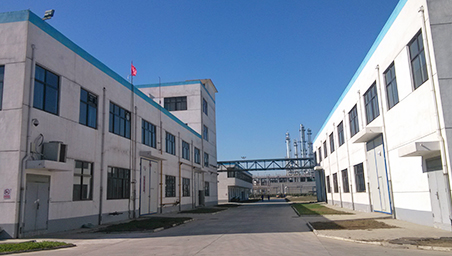
News
Jul . 28, 2024 01:01 Back to list
Exploring the Benefits of Vitamin C Chelation for Enhanced Nutrient Absorption and Health Improvement
Vitamin C and Chelation A Deep Dive into an Essential Nutrient's Role in Detoxification
Vitamin C, also known as ascorbic acid, is one of the most vital nutrients for the human body, playing critical roles in various physiological processes. While it is celebrated primarily for its antioxidant properties and contributions to immune function, emerging research has highlighted its potential in the process of chelation – a mechanism that can help detoxify the body from harmful metals such as lead, mercury, and cadmium.
Understanding Chelation
Chelation is a biochemical process where certain substances, known as chelators, bind to heavy metals and minerals in the bloodstream. This binding transforms these metals into a more easily excreted form, allowing the body to eliminate them more effectively. Chelation therapy has been traditionally employed in the medical field for treating heavy metal poisoning using agents like EDTA (ethylenediaminetetraacetic acid). However, the role of natural compounds like Vitamin C in chelation therapy has only started gaining attention.
The Role of Vitamin C in Chelation
Research indicates that Vitamin C has the ability to enhance the excretion of heavy metals from the body. It acts as a reducing agent, facilitating the conversion of certain metals into less toxic forms. Specifically, when Vitamin C is ingested, it can reduce ferric (Fe3+) ions into ferrous (Fe2+) ions, creating a more soluble form that promotes the elimination of these metals from the body.
Moreover, Vitamin C may help regenerate other antioxidants in the body, further protecting cells from oxidative damage that heaviy metals often invoke. This important interaction not only underlines Vitamin C's role in chelation but also emphasizes its overall defensive mechanism against the harmful effects of metals, thus supporting the body's detoxification pathways.
The Evidence Supporting Vitamin C Chelation
vitamin c chelation

While much research has been conducted on synthetic chelators, the studies focusing on Vitamin C are gradually accumulating. Various animal studies and preliminary human trials have shown that high doses of Vitamin C can lead to increased urinary excretion of lead and other heavy metals.
One notable study investigated the effect of Vitamin C supplementation in occupational exposure to lead among workers. The results suggested that those who received Vitamin C showed significantly lower blood lead levels compared to those who did not receive the supplementation. Furthermore, combining Vitamin C with other nutritional strategies can potentially lead to synergistic effects in detoxification, enhancing the body's ability to cope with toxic loads.
Practical Considerations
Including Vitamin C in one’s diet could serve as an advantage in promoting overall health while aiding in the chelation of heavy metals. Foods rich in Vitamin C, such as citrus fruits, strawberries, bell peppers, and broccoli, should be emphasized in daily nutrition. For those concerned about heavy metal exposure, particularly in polluted environments or through dietary sources such as contaminated fish, increasing Vitamin C intake might be a proactive approach.
However, it is essential to approach Vitamin C supplementation with care. High doses may lead to gastrointestinal distress or kidney issues in certain individuals. Consulting healthcare professionals before commencing any supplementation, especially if one is considering it as a form of chelation therapy, is advisable.
Conclusion
Vitamin C stands out as an essential nutrient with a multifaceted role in promoting health, including its potential capacity for aiding in the chelation of heavy metals. As research continues, further insights into its effectiveness and mechanisms will undoubtedly shed more light on how we can harness this vitamin not just for immunity and skin health, but also as a natural ally in detoxification processes. In a world increasingly affected by environmental toxins, understanding the role of Vitamin C in chelation could be fundamental for personal and public health strategies.
-
Polyaspartic Acid Salts in Agricultural Fertilizers: A Sustainable Solution
NewsJul.21,2025
-
OEM Chelating Agent Preservative Supplier & Manufacturer High-Quality Customized Solutions
NewsJul.08,2025
-
OEM Potassium Chelating Agent Manufacturer - Custom Potassium Oxalate & Citrate Solutions
NewsJul.08,2025
-
OEM Pentasodium DTPA Chelating Agent Supplier & Manufacturer High Purity & Cost-Effective Solutions
NewsJul.08,2025
-
High-Efficiency Chelated Trace Elements Fertilizer Bulk Supplier & Manufacturer Quotes
NewsJul.07,2025
-
High Quality K Formation for a Chelating Agent – Reliable Manufacturer & Supplier
NewsJul.07,2025
